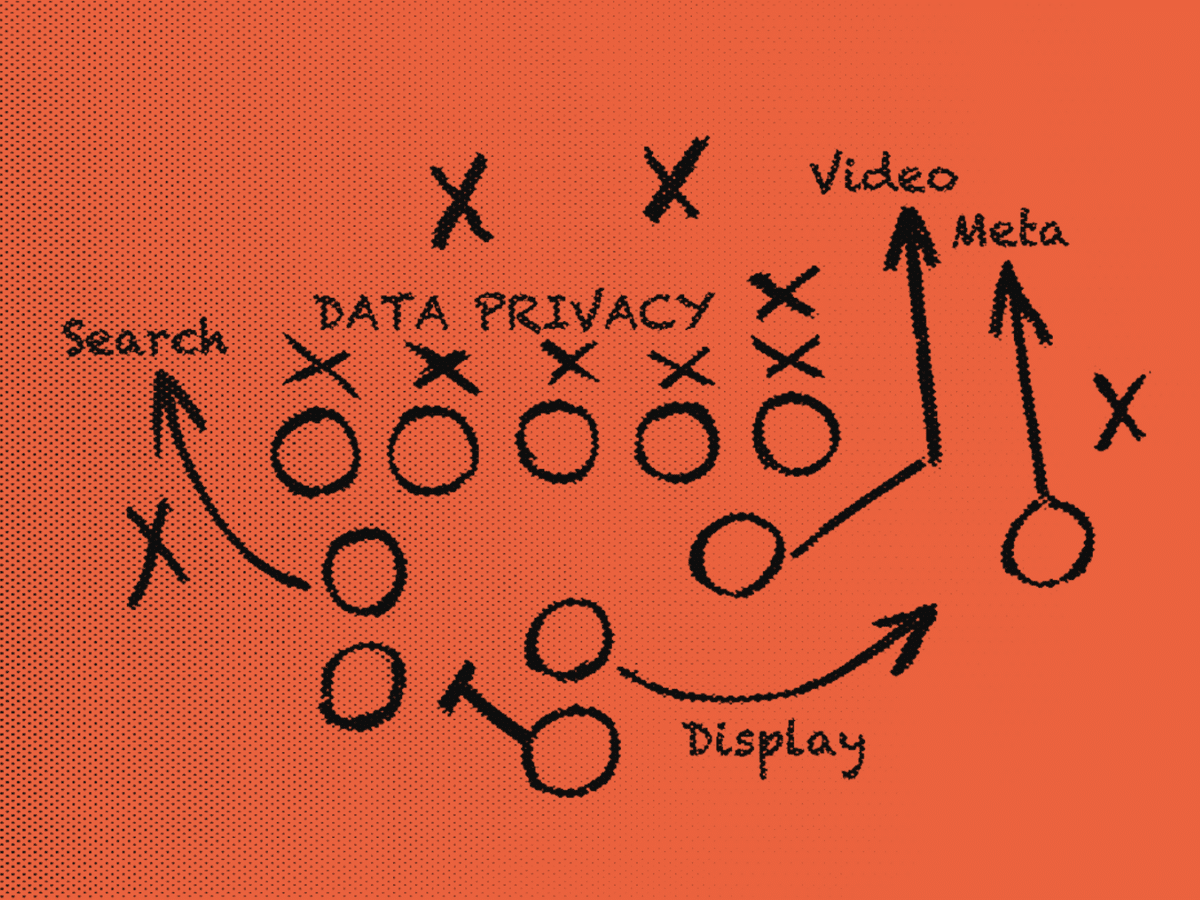Learn to navigate the art and science of effective marketing procurement to optimize ROI.
Often, we’re asked why our Collective has an Interim Chief Procurement Officer (CPO). What does this role entail, and what value does it bring to the table?
In the context of our consulting and marketing services, a Chief Procurement Officer wears many hats: tech whizz, investment officer, marketer, process engineer, executive recruiter, therapist, and “finesser” of finance.
A CPO is an artist and a scientist who can navigate complex relationships among different teams and align their interests while ensuring that the “nuts and bolts” of an agency engagement—such as fee structure, legal considerations, and payment schedule—don’t fall through the cracks.
What’s Effective Marketing Procurement, and Why Should You Care?
The role of marketing procurement professionals has been evolving alongside industry trends, as well as strategies, activities, and technologies. We’re all in marketing procurement when we manage our clients’ marketing investments to get the best value and return on their spend.
At the helm of it all is a fearless leader who is truly is a chameleon. This person—the CPO—needs to constantly disrupt existing processes from top to bottom so we can create opportunities for change and optimize our clients’ budgets. They are in charge of leading transformation from the perspective of “getting things done,” with a focus on effectiveness and efficiency.
In the marketing world, this role has been a long time coming. After knocking on the door for some time (and in some cases, forcing the way through), procurement’s involvement in marketing is gaining momentum. For instance, a recent survey found that over 80% of companies use procurement processes to review agency compensation and manage the creative supply chain.
Yet, not everyone recognizes a CPO’s or procurement professional’s contribution. If you’re new to this category, what can you do to become a more effective marketing procurement expert and gain influence?
Top 10 Ways To Effectively Service Your Business and Stakeholders
With so many things to juggle, where should you focus your energy? Here are some success secrets of effective marketing procurement professionals:
1. Get the Relationships Right
Relationship management is an essential key to success. The relationships between marketers and their agency partners can last a career, helping both parties succeed in their respective companies.
However, building relationships isn’t always easy. It’s often a long process that involves cultivating mutual trust and respect. You need to make an effort to understand the competition faced by your marketing team and research the agency landscape so you can empathize with your stakeholders’ challenges.
While you may be dealing with leadership that’s keen (or impatient) to see a good return for their marketing spend, don’t make promises without the full support of senior marketers. It’s essential to have open and transparent conversations with the marketing leadership so you can build the trust you need for a long-term relationship.
2. Be Prepared to Take Risks
In the wake of an economic downturn, many are paralyzed by fear. Whether it’s the fear of losing market share, alienating consumers, or losing their job, marketers baulk at taking risks. Yet, this is a time when innovative ideas will become the much-needed gamechanger for any brand.
We should foster an environment in which pushing boundaries and taking calculated risks is part of the process. Invest the time to try new suppliers, learn from startups, apply various commercial principles, and implement new technologies to drive efficiency.
Meanwhile, agencies are more likely to break from formulaic work and devise innovative solutions if they have “skin in the game.” Set up relationships with agencies while ensuring the fee payment structure encourages the creation of brave strategies and the implementation of game-changing work.
3. Know What You’re Paying For
The best procurement professionals understand that marketing is an investment to maximize, not a cost to minimize. To effectively measure quality, which is as important as assessing costs, you need to understand the problems you’re aiming to solve.
Defining your marketing objectives is key to choosing the right partners and setting up the proper fee structure (e.g., paying for Full-Time Equivalents vs creative output) to deliver the most value at the best price while allowing you to demonstrate procurement’s value-adding role.
Once the relationship is established, focus on output and outcome to ensure real value in the compensation model so you can keep the relationships healthy. This also allows you to determine meaningful metrics to measure efficiency and success.
4. Demonstrate Your Interest
Purchasing marketing services isn’t the same as buying a standardized product when the price is the main differentiator. There are many nuances to whether an agency is a good fit for your company. Instead of jumping right into the “nuts and bolts,” you should take the time to get clear on what you’re spending your budget on.
As you gather valuable information, you also open the door to explore topics that are relevant to procurement, such as, “How do your suppliers support you in achieving your objectives” and, “How is the performance of your suppliers compared with your expectations?”
5. Ensure Open and Transparent Communications
For partners to produce a proposal that delivers real value for money, they need to have as much information as possible. Unlike the procurement of a commodity product, which can be rather cut-and-dry, services such as consultancy, design, and marketing are complex and open to subjective interpretation.
If you don’t share your business objectives, concerns, and risk tolerance, not only will you be wasting time on unnecessary back-and-forth down the road, but the agencies will often have to build in price contingency, increasing your costs.
6. Create Clear, Insightful, and Detailed Briefs
An agency or service is only as good as you allow it to be, and a well-written brief is a key to setting a solid foundation. Doing so allows you to approach the right agencies and create a win-win situation. Marketing will be happy because the agency is more likely to present solutions that meet their expectations, while the agency will be happy because it’s set up for success.
Since procurement professionals are often involved in defining requirements, it’s beneficial for them to have a marketing background so they can ask the right questions. It’s also important to ensure that all key stakeholders are involved in the brief creation process to avoid disagreements or disruptions later.
7. Prioritize Value Over Cost
While it’s rather straightforward to reduce cost by decoupling production, implementing digital asset management processes, and consolidating print buying, the water becomes treacherous when you venture into the intangible world of agency fees.
If I could only advocate one golden rule, it is this: think about your spending in terms of their potential value, not its costs.
It’s important to remember that an agency’s role is to provide “solutions to problems with infinite possible solutions.” These solutions also have highly variable value, effectiveness, or ROI. As such, the challenge for marketing procurement is to help marketers ensure that their agencies are suitably managed, remunerated, and incentivized to deliver optimal value.
8. Measure the Right Metrics
When it comes to procurement, you become what you measure.
Reducing costs is undoubtedly desirable in business, and procurement plays an important role in the proper management of costs. However, the single-minded pursuit of “cost-saving” metrics over other more sophisticated or relevant measures of performance has taken a heavy toll on the perception of (and attitudes within) the procurement function.
Being a one-trick pony is a risk—particularly in marketing procurement because we have to account for a wide scope of values that are driven by intangible elements, such as creativity or insights. If you tried to save a relatively small amount on a creative piece, but the outcome was a disaster, then you’d not only have wasted the money on hiring the agency but also the budget spent on executing the campaign, such as buying media.
9. Get to Know the People Who Do the Work
An agency is made up of the people who work on your project. Yet, their ability to make your campaign sing is often buried in a slew of lengthy RFIs and RFPs used to cover the required company “hygiene factors.” This presents a one-dimensional view of the team in which you’re going to invest a significant sum.
When you get involved with team members from each agency early on and go beyond evaluating their written submissions or proposals, the agencies are more likely to treat you as a key member of the client team. This also allows you to look underneath the hood and form an opinion about the agencies in a more revealing and intuitive way.
10. Design a Fair Remuneration Approach
Clients appoint marketing suppliers to deliver measurable results based on clearly-defined business objectives. Even if the goals are ambitious, an agency will work its hardest to reach them—provided that the remuneration strategy is fair.
The payment schedule, which should be agreed upon jointly, needs to correspond to clear milestones that reflect the nature and duration of the task. Marketing agencies often pay third-party suppliers (e.g., photographers, printers) on a client’s behalf. As such, you should pay on time and within fair terms so your agency can do responsible business on your behalf. Poor conditions will cause suppliers to focus their attention and talents on better-paying clients.
Also, be cautious when a marketing supplier offers a heavily discounted fee to secure your business because it will likely juggle its best talents to the accounts where the profit lies. Instead, pay a fair base fee to ensure that the best team is committed to your business. Then, combine it with a well-structured, motivating performance-related fee (PRF). PRF targets should be clear, within the agency’s influence, and ambitious but attainable.
Final Thoughts for Effective Marketing Procurement
We play a crucial role in ensuring that marketing teams are working with the right agencies to achieve their objectives. They facilitate the processes to achieve effective marketing procurement and provide efficiency while establishing productive relationships to optimize long-term ROI.
Mastering marketing procurement is part art and part science. Not only do you need the abilities to get into the nuts and bolts of scoping and contract negotiation, but you also have to build relationships with the agency teams so you can accurately evaluate whether they’re a good fit for your projects.
As there is an increasing number of moving parts in today’s marketing initiatives, the role of CPOs and marketing procurement professionals will become more prominent in identifying and engaging with the right agencies, as well as setting up the relationships for long-term success.
The complexity of the role often turns “procurement” into a four-letter word. But we disagree—unless that word is sh*t, because we get a lot of that done, and fast, with our marketing procurement services.
Get in touch to see how we can help you set up your campaigns for success, or better yet, teach your procurement teams on how to become better marketers and deliver top-line value to your business.






